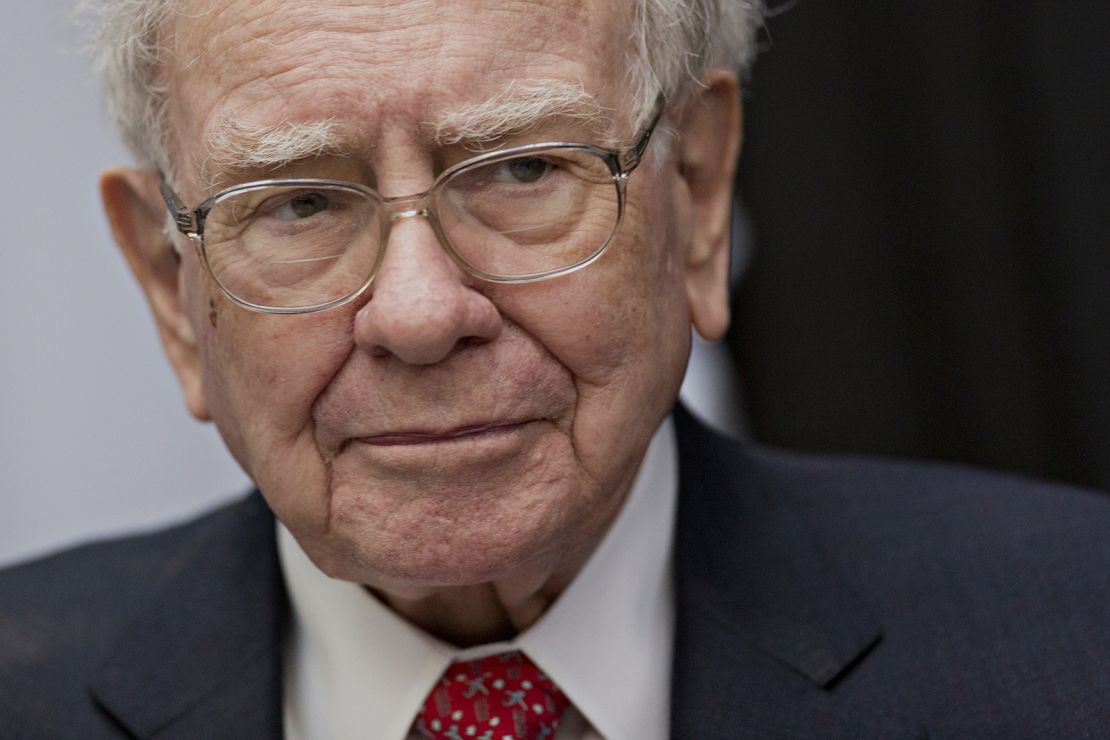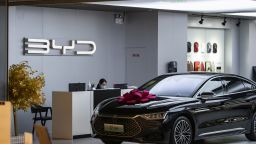Warren Buffett’s Berkshire Hathaway has further cut its large stake in BYD, which vies with Tesla as the world’s largest electric car (EV) maker, as global trade tensions escalate over Chinese EVs.
The legendary investor’s conglomerate sold another 1.35 million Hong Kong-listed shares of BYD on June 11, trimming its stake to 6.9% from 7.02%, a Hong Kong stock exchange filing showed Monday. The sale was valued at 310.5 million Hong Kong dollars ($40 million).
It’s the first major sale of BYD shares by Berkshire in ten months and the 14th since August 2022, when it started gradually reducing its stake in China’s top EV maker. BYD shares had closed at a record high in June of that year.
The latest sale comes as tensions soar over exports of cheap EVs from China.

The country has become a dominant force in the global EV market, thanks to significant policy support from the government and heavy state subsidies. But a flood of cheap models has raised the specter of another trade war with its Western trading partners.
Last week, the European Union hit EVs imported from China with additional tariffs because of what it sees as Beijing’s unfair support for companies that undercut European carmakers.
That is expected to deal a blow to the the country’s manufacturers, which view Europe as a key export market. BYD will face an additional levy of 17.4% on top of the bloc’s existing 10% duty on car imports, according to an announcement from the European Commission.
Beijing, which has big dreams for its EV industry, has threatened to retaliate. On Monday, it announced an anti-dumping investigation into imports of pork from the EU.
Tensions had previously escalated between China and the United States over the same issue. In May, the Biden administration quadrupled tariffs on EV imports from China, from 25% to 100%, aiming to boost American jobs and manufacturing.
Buffett said last year that it’s “imperative” for the US and China to settle their differences and “get along with each other.”
‘Right’ investment in BYD
BYD, which was founded by Wang Chuanfu in Shenzhen, has had an extraordinary rise over the past three decades. It overtook Elon Musk’s Tesla (TSLA) at the end of last year as the biggest seller of electric vehicles on the planet. (Tesla regained its position in the first quarter of this year, but they’re neck and neck.)
In 2008, Berkshire spent $230 million in buying BYD shares at an average of HK$8 ($1.02) apiece. Back then, BYD’s share price had fallen to a record low during the global financial crisis.
That investment has proved to be one of the firm’s most successful ever.
In June 2022, the Chinese EV maker hit a record closing high of HK$331.4, about 41 times the price Berkshire had paid originally.
Since then, Berkshire has been on a selling spree, with its first major sale disclosed in August 2022.
So far, Berkshire has sold about 149 million shares.
Berkshire has not disclosed the reason for the sales. The company didn’t immediately respond to a request for comment by CNN.
Last month, Buffett mentioned BYD at Berkshire’s 2024 annual meeting, crediting his closest business partner Charlie Munger, who passed away in November, for his call to buy the stock. Munger “was right, big-time,” he said.
Berkshire still holds 75.7 million Hong Kong-listed shares of BYD, which were worth about 17.6 billion Hong Kong dollars ($2.3 billion) by Tuesday.









